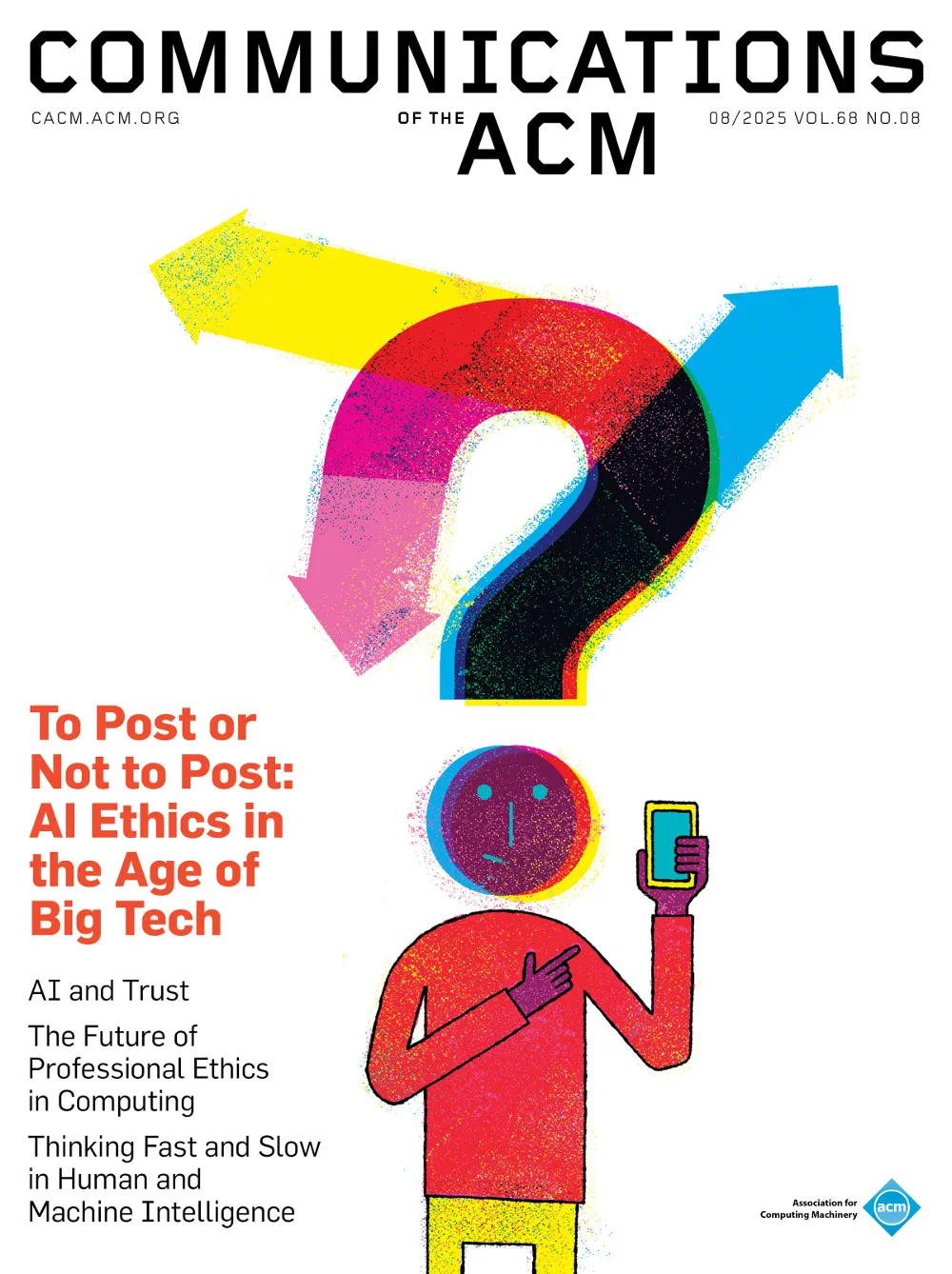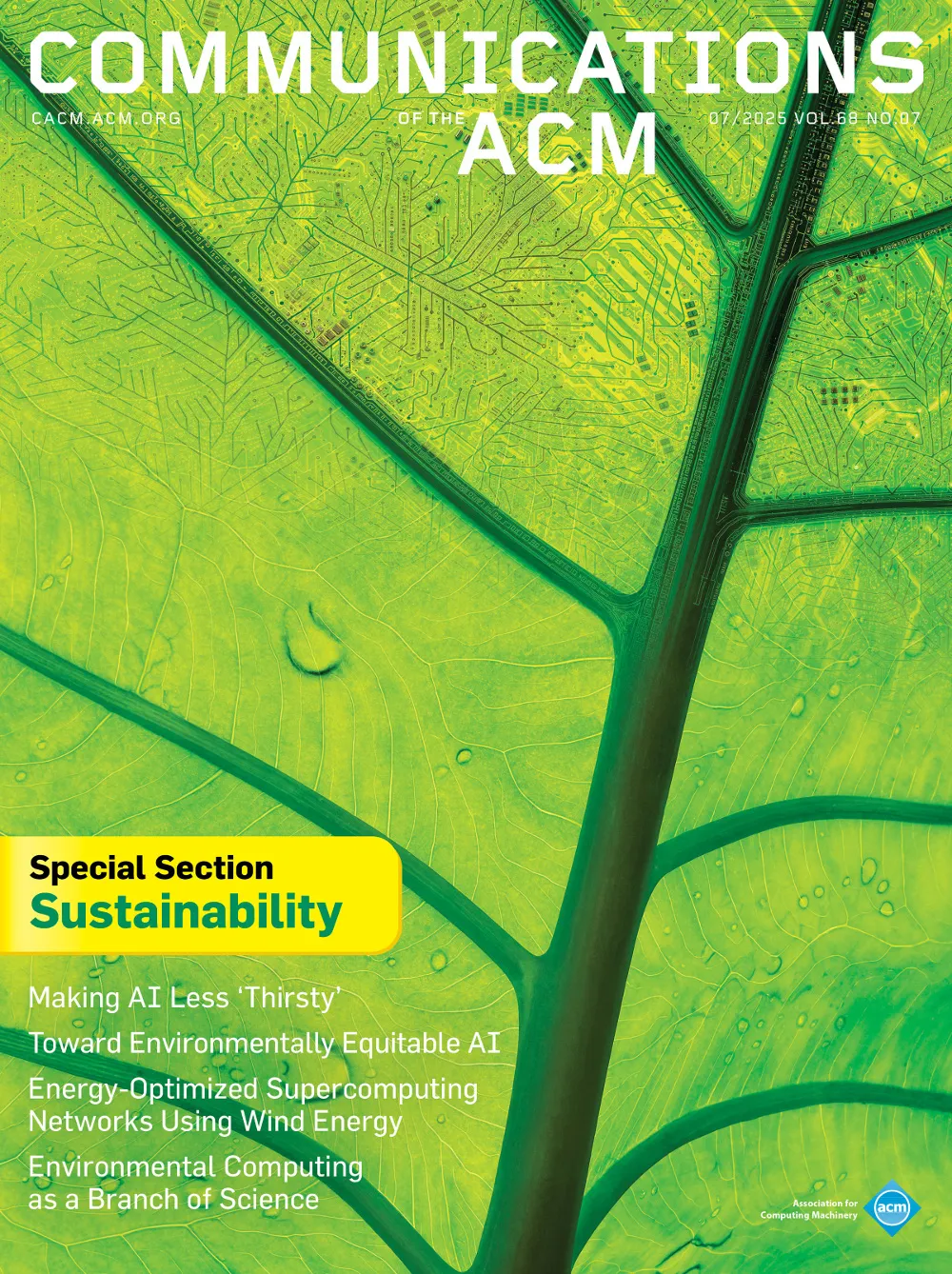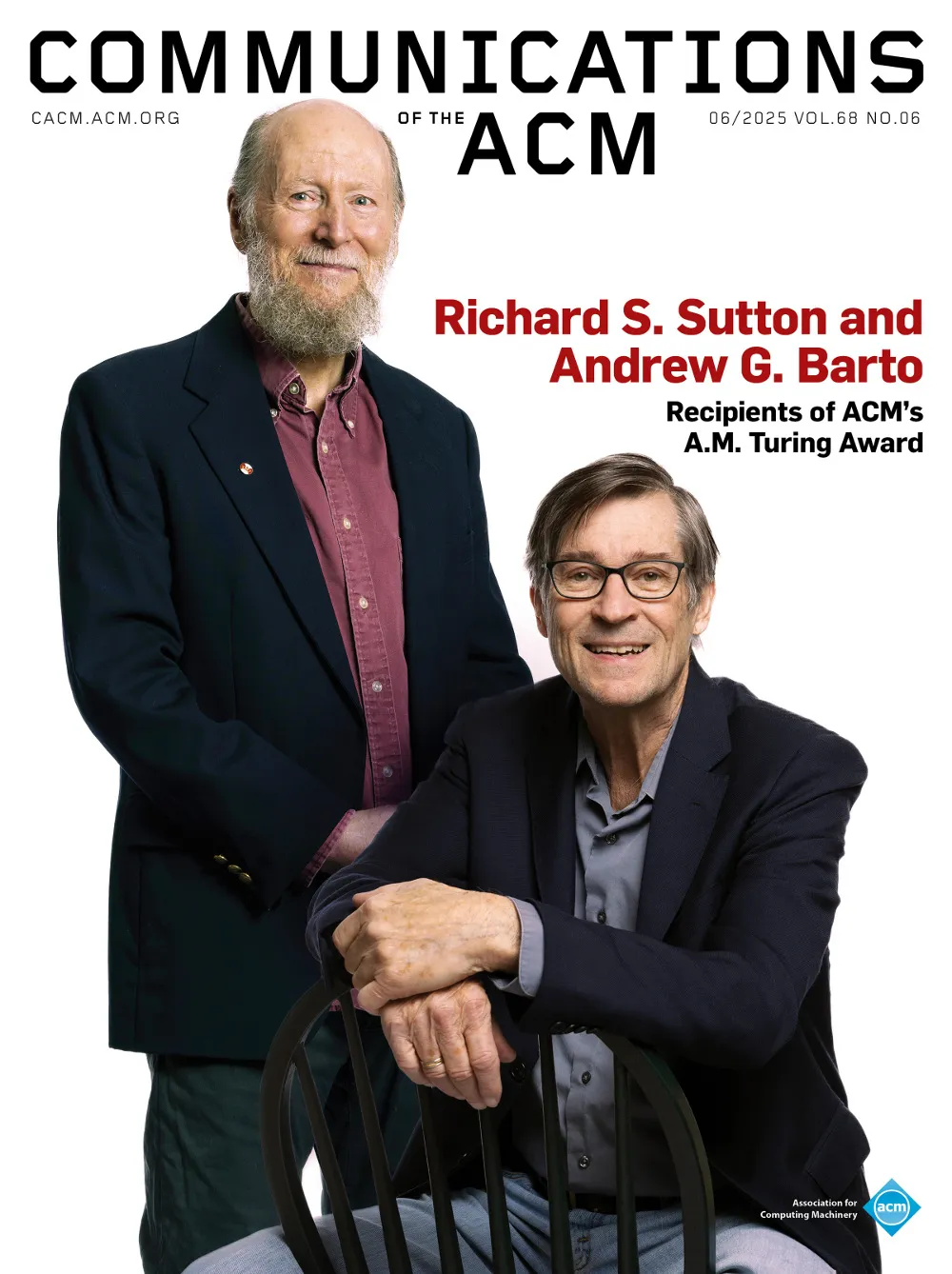April 1989 - Vol. 32 No. 4

Features
Volumetric rendering speaks volumes for data 20 orders of magnitude apart—from human anatomy to neuroanatomy, and from electrostatic charges of macromolecules to failure analysis of manufactured parts.
A conversation with Steve Jobs
NeXT, Inc. President and CEO Steve Jobs (left), and VP of Sales and Marketing, Dan'l Lewin, discuss the goals of the new company, and the NeXT Computer System itself.
How can a system that differs sharply from all currently fashionable approaches score any kind of success? Here's how.
The experience of home-based systems developers is compared with their office-based counterparts in a UK computer firm. The analysis produced two major patterns: the home-based workers find intrinsic value in the job, whereas office-based employees view it more instrumentally and find it interferes with satisfaction on a personal level.
A self-assessment procedure on the application of copyright law to computer programs
Developing knowledge-based systems: reorganizing the system development life cycle
Through methodological evolution, the development of the Knowledge-Based Development Life Cycle is supported. In this methodology, processes replace phases and stages and during system development, dynamic activation of processes allows the system to evolve.
Data compression with finite windows
Several methods are presented for adaptive, invertible data compression in the style of Lempel's and Ziv's first textual substitution proposal. For the first two methods, the article describes modifications of McCreight's suffix tree data structure that support cyclic maintenance of a window on the most recent source characters. A percolating update is used to keep node positions within the window, and the updating process is shown to have constant amortized cost. Other methods explore the tradeoffs between compression time, expansion time, data structure size, and amount of compression achieved. The article includes a graph-theoretic analysis of the compression penalty incurred by our codeword selection policy in comparison with an optimal policy, and it includes empirical studies of the performance of various adaptive compressors from the literature.



